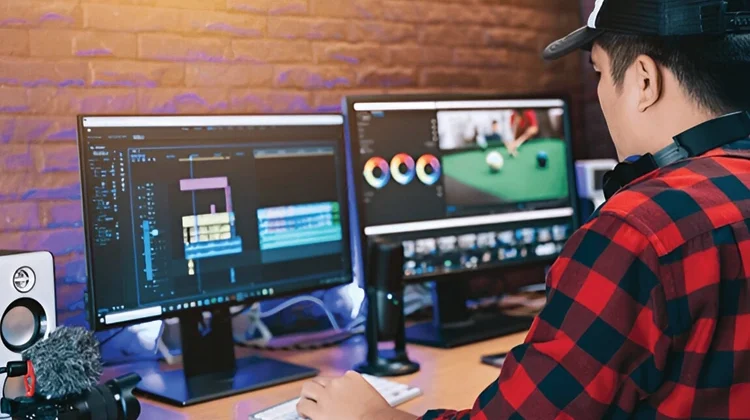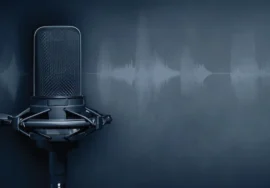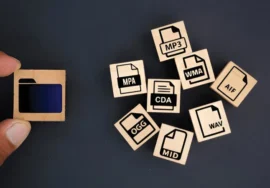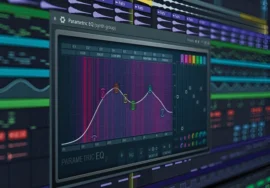
Your Guide to Digital Creativity
The digital age has revolutionized the way we create and consume content. Music, once confined to physical studios and instruments, is now accessible to anyone with a computer or smartphone. Online platforms have opened up a world of possibilities for musicians, from hobbyists to professionals. This article will explore the exciting realm of making music online and give you the tools and knowledge to embark on your creative journey.
Choosing the Right Online Platform
The first step in your online music-making adventure is to select a suitable platform. Many options are available, each with its own unique features and target audience. Consider the following factors when making your choice:
- Your skill level: Are you a beginner or a seasoned musician? These platforms offer more comprehensive tutorials and resources for beginners.
- Your musical style: Different platforms cater to various genres and styles. If you’re into electronic music, for example, you might want to explore platforms with specialized features like virtual synthesizers and drum machines.
- Collaboration features: Do you want to collaborate with other musicians? These platforms offer real-time collaboration tools and social features that ease connections.
- Pricing: Many platforms offer free versions, but for advanced features and added storage, you might need to subscribe to a premium plan.
Popular Online Music-Making Platforms
- BandLab: This platform offers a wide range of features, including virtual instruments, audio effects, and collaboration tools. It’s suitable for musicians at all levels.
- SoundCloud: While known as a music streaming platform, SoundCloud also allows users to upload and share their original tracks. It’s a great place to connect with other musicians and build a following.
- GarageBand: Apple’s GarageBand is a powerful music creation software that comes pre-installed on Mac computers. It offers a user-friendly service with a variety of virtual instruments and effects.
- Ableton Live: A popular choice among electronic music producers, Ableton Live is known for its flexible workflow and powerful features. It’s ideal for creating complex arrangements and live performances.
- FL Studio: Another popular DAW (Digital Audio Workstation) used by many electronic music producers, FL Studio offers a wide range of features and a modular work with.
Essential Tools for Online Music Production
- Audio works with: This device connects your instruments or microphones to your computer, allowing you to record high-quality audio.
- Microphones: Choose microphones that are suitable for your specific needs, whether it’s recording vocals, instruments, or ambient sounds.
- MIDI keyboard: If you’re working with virtual instruments, a MIDI keyboard can give a more tactile experience.
- Headphones: Good-quality headphones are essential for monitoring your audio and ensuring correct mixing.
- Studio monitors: If you have the space and budget, studio monitors can give a more correct representation of your music.
Learning Music Production Techniques
Once you have the necessary tools, it’s time to start learning music production techniques. There are countless resources available online, including tutorials, courses, and forums. Here are a few tips to get you started:
- Start with the basics: learn about concepts like tempo, time signatures, and scales.
- Experiment with different sounds and techniques. Don’t be afraid to try new things and explore different genres.
- Practice regularly: The more you practice, the better you’ll become.
- Seek feedback: Share your music with others and ask for their honest opinions.
Sharing Your Music Online
Once you’ve created your music, it’s time to share it with the world. Here are some tips for promoting your music online:
- Create a strong online presence: Build a website or blog to showcase your music and connect with fans.
- Utilize social media: Share your music on platforms like Instagram, Facebook, and Twitter.
- Engage with the music community: Interact with other musicians and fans to build relationships.
- Consider using a music distribution service: Platforms like Bandcamp and DistroKid can help you distribute your music to various streaming platforms.
Monetizing Your Music Online
Once you’ve established yourself as a musician and built a following, you may want to explore ways to monetize your music. Here are some common methods:
- Streaming platforms: Platforms like Spotify, Apple Music, and YouTube Music offer artists the opportunity to earn revenue through streaming royalties.
- Merchandise sales: Selling merchandise such as t-shirts, hats, and posters can be a lucrative way to generate income.
- Live performances: Booking gigs and performing live can be a significant source of income for musicians.
- Licensing: If your music is used in films, TV shows, or video games, you can earn licensing fees.
- Patreon: This platform allows you to create a membership-based community and receive monthly donations from your fans.
Collaborating with Other Musicians
Collaborating with other musicians can be a rewarding and fruitful experience. It can help you expand your network, learn new techniques, and create unique and innovative music. Here are some tips for successful collaborations:
- Find musicians with complementary skills: Look for artists whose strengths complement your own.
- Communicate openly and honestly: Establish clear expectations and boundaries from the beginning.
- Be open to new ideas: Don’t be afraid to experiment and try new things.
- Give credit where it’s due: Make sure everyone involved is properly credited for their contributions.
Overcoming Challenges in Online Music Production
While making music online can be incredibly rewarding, it’s important to be aware of the challenges you may face:
- Technical difficulties: equipment malfunctions, software crashes, and internet connectivity issues can disrupt your workflow.
- Competition: The music industry is highly competitive, and it can be difficult to stand out from the crowd.
- Copyright infringement: Be mindful of copyright laws and avoid using copyrighted material without permission.
- Burnout: Creating music can be demanding, and it’s important to take breaks and avoid burnout.
Conclusion
Making music online offers a world of opportunities for aspiring musicians. By following the tips and advice in this article, you can embark on a fulfilling and rewarding creative journey. Remember to have fun, experiment, and most importantly, enjoy the process!





